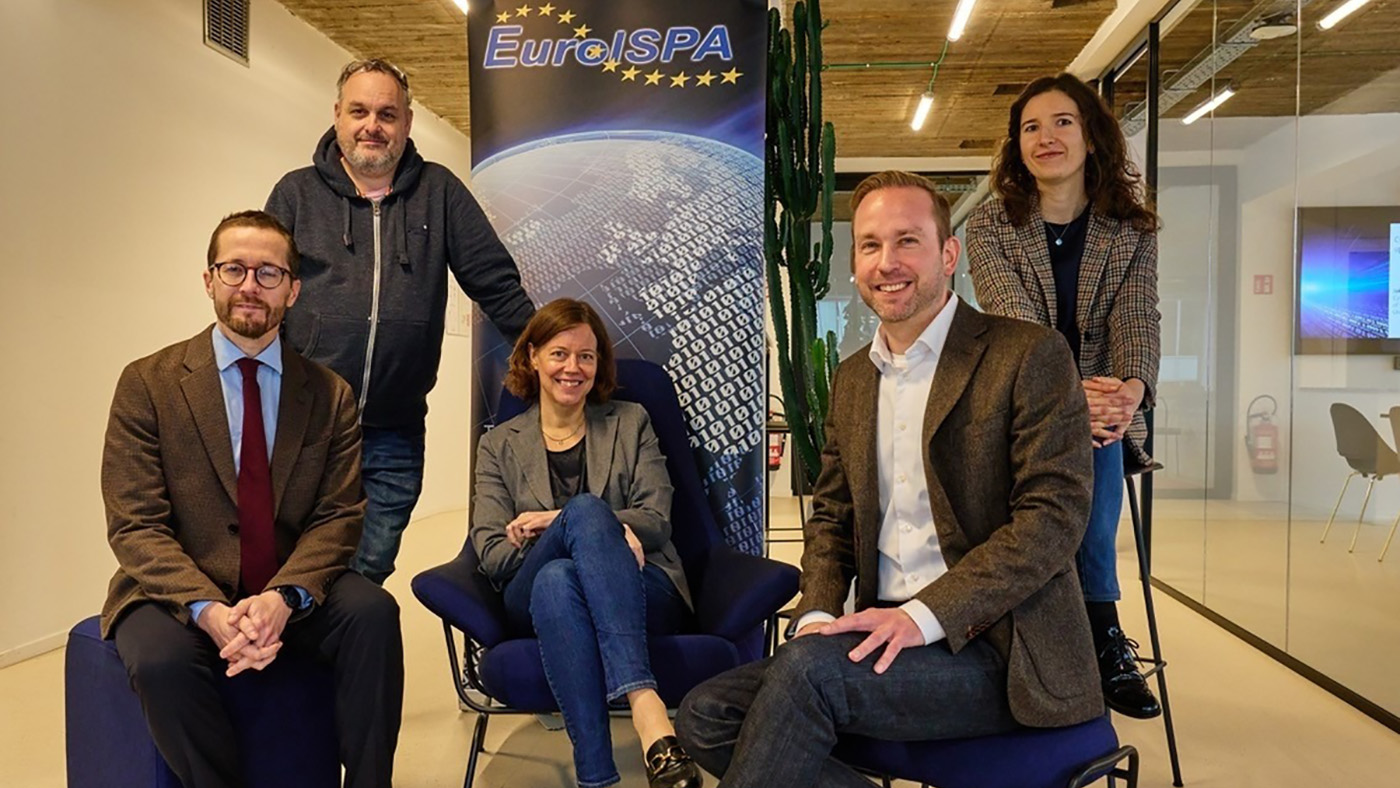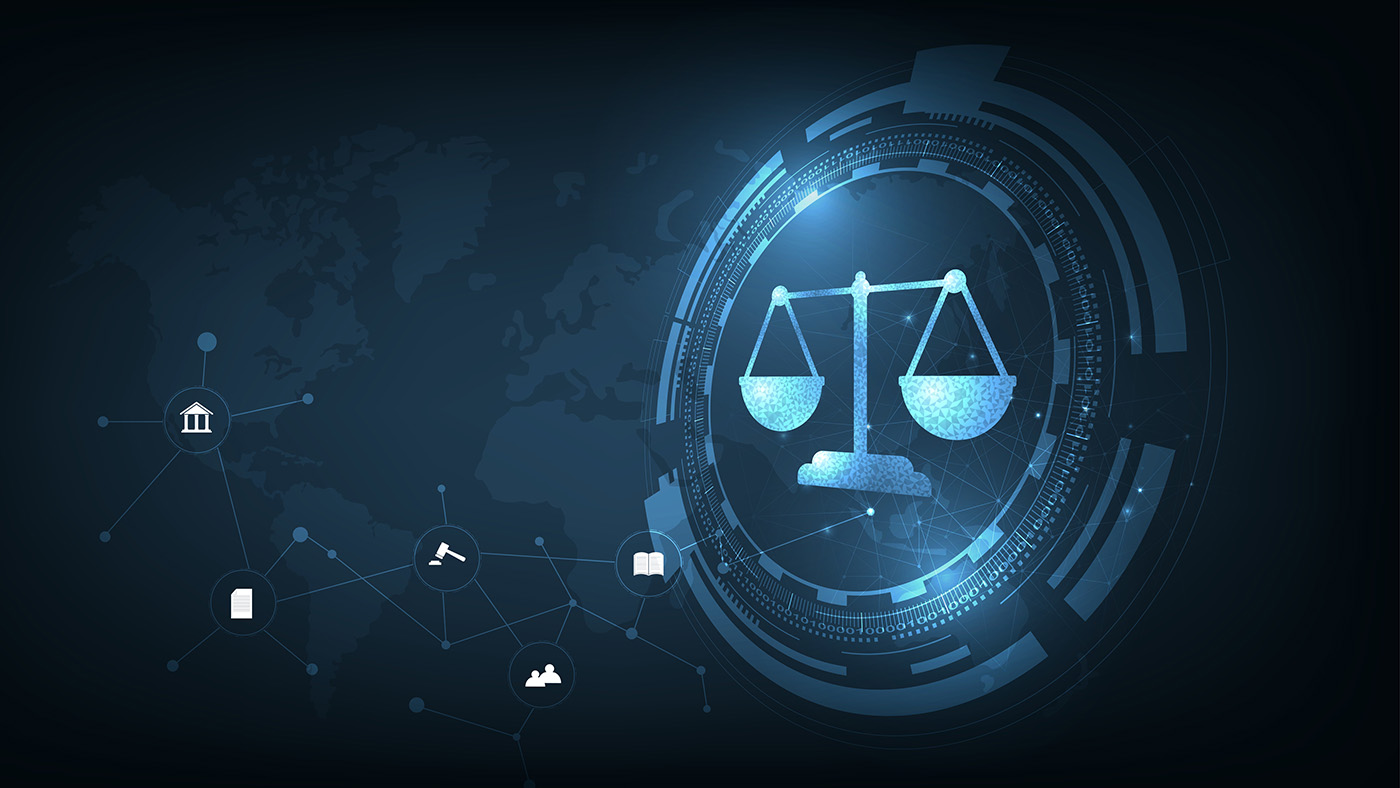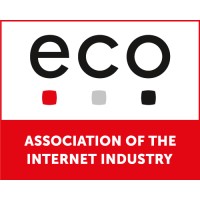EuroISPA Sets the Course for a Stronger Digital Europe
EuroISPA’s 2025 General Meeting brought together a wide range of EU policymakers and digital leaders. Lars Steffen of eco highlights key actions toward a more sovereign, secure, and competitive digital Europe.
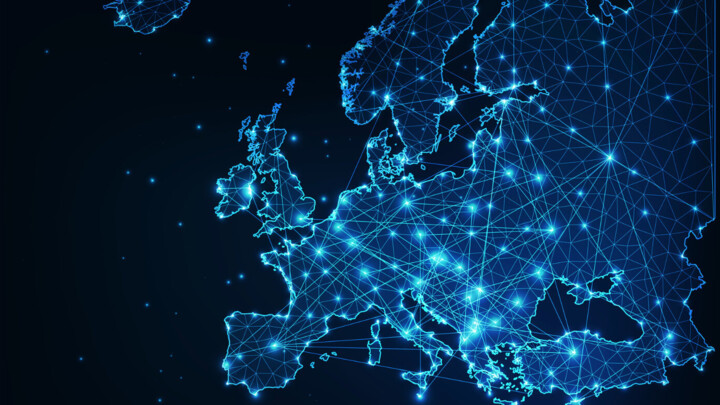
©inkoly | istockphoto.com
Founded in 1997, EuroISPA is the world’s largest umbrella association of Internet Service Providers (ISPs), representing over 3,300 ISPs across EU and EFTA countries. Headquartered in Brussels, EuroISPA plays a pivotal role in shaping European digital policy, advocating for a competitive, open, and sustainable Internet.
The 1st General Meeting of 2025, hosted by EuroISPA in Brussels this March, brought together national Internet industry associations, technology company representatives, and EU policymakers at a critical juncture for Europe’s digital future. With geopolitical tensions on the rise and the European Union deepening its commitment to digital sovereignty and resilience, the two-day meeting served as both a strategic checkpoint and a collaborative forum for the future of Europe’s digital landscape.
Against this backdrop, the discussions centered on tech sovereignty, cybersecurity infrastructure, regulatory implementation and simplification, and cross-border data transfers – priorities identified as crucial for strengthening Europe’s digital competitiveness on the global stage.
Setting the tone: Sovereignty, security, and democracy
A highlight of the first day’s meeting was the keynote address by Werner Stengg, Cabinet Member to Executive Vice-President Henna Virkkunen, responsible for Tech Sovereignty, Security, and Democracy. Stengg emphasized that the turbulent geopolitical environment makes Virkkunen’s mission particularly crucial. Investment in digital infrastructure, reducing dependencies, and addressing vulnerabilities will be at the core of the Vice-President’s work.

Werner Stengg
Cabinet Member
Stengg reassured members that the mandate would prioritize consolidation, implementation, and simplification, rather than introducing new legislation without justification. He outlined several upcoming initiatives, including AI factories, cloud and AI development, data union, skills, AI agenda, as well as the Digital Networks Act (DNA) and Digital Fairness Act (DFA).
In a move welcomed by members, Stengg invited EuroISPA to submit concrete examples of GDPR implementation challenges as part of the upcoming “Fourth Omnibus” simplification package for SMEs and mid-caps. He acknowledged that simplification, while important, is not an easy exercise.
Regarding cybersecurity and competition, Stengg highlighted security as the next big priority after competitiveness and mentioned the Internal Security Strategy. He reassured that the Commission is not yet rethinking the Digital Services Act (DSA) and the Digital Markets Act (DMA).
Following the guest speaker’s presentation, members agreed on the importance of providing concrete examples of GDPR implementation challenges. They recognized this early stage of the mandate as an opportune time to provide input to the institution. As such, they proposed inviting representatives back in two years to assess progress.
Aligning strategy with action: EuroISPA’s vision 2024–2029
The EuroISPA Brussels-based Secretariat presented the updated strategic framework, including the new “Work Programme for 2025” and the broader Vision 2024–2029. Designed to better align with EU policy timelines, the refreshed strategy aims to enhance coordination between national associations and European institutions.
Members welcomed the update and agreed on the “Work Programme for 2025.” They also requested two key additions: a concise, one-page version of the Vision for easier dissemination, and a more detailed version of the full strategy document.
To support this, the Secretariat agreed to collaborate with members through Committee-level discussions. A draft one-pager will be circulated for approval, and the previous version of the Vision will be shared with the wider membership to gather feedback and help consolidate a forward-looking EuroISPA strategy.
This collaborative process reflects a broader shift in digital policy development – from reactive stances to coordinated, proactive engagement across the European ecosystem.
Expanding collaboration across key policy areas
In addition to the strategic discussions, members received updates from several EuroISPA Committees.
The Online Content Committee reviewed the state of play of the CSAM Regulation (“Regulation on laying down rules to prevent and combat child sexual abuse”) and the Child Sexual Abuse (CSA) Directive. The committee also discussed potential developments on encryption in Germany in the context of the new government formation. The Mobile World Congress debrief underscored the growing influence of AI and AI agents on the broader digital ecosystem.
In the cybersecurity and infrastructure meeting, Elisabeth Debar (FFT) was elected the new Committee Chair, and the EuroISPA Secretariat committed to circulating upcoming consultations on the Cyber Resilience Act and Cybersecurity Act.
Building momentum through engagement and outreach
On the second day of the EuroISPA meeting, the importance of communication, external engagement, and institutional coordination was underscored. The EuroISPA Secretariat presented its Annual Policy Report 2024 - Brussels Outlook 2025, outlined upcoming communication activities including a new blogpost series, and encouraged members to contribute.
Members also discussed key policy files in the data economy and expressed strong interest in topics such as the Data Privacy Framework, AI and copyright, and international cooperation. For the upcoming General Meeting in November, invitations will be extended to MEPs Axel Voss and Alex Agius Saliba to deepen engagement on these fronts.
Shaping Europe’s digital future: Insights from the Danish Council Presidency
Adding to the institutional perspective, guest speaker Katinka Clausdatter Worsøe of the Danish Permanent Representation to the EU shared insights into Denmark’s initial digital priorities for the upcoming Danish Council Presidency. Worsøe outlined a forward-looking agenda that places digital competitiveness and the online safety of minors high on the political radar – though noted that CSAM legislation remains outside her remit. Stakeholder input is currently being welcomed for the drafting of Council Conclusions, which are expected to be adopted at the 5 December TELECOM Council. Focus areas will include tech sovereignty, progress toward the EU’s Digital Decade goals, and wider digital competitiveness.
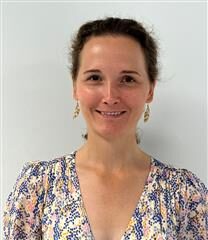
Katinka Clausdatter Worsøe
Danish Permanent Representation to the EU
Worsøe also shared preliminary views on key policy files: Denmark supports a regulation-based approach to the DNA, expects an interim European Commission report this spring, and underlined the importance of evidence-based policymaking. She also touched on infrastructure issues such as subsea cables, for which Denmark awaits further Commission clarification, and upcoming consultations on Significant Market Power .
Following Worsøe’s presentation, members and the Secretariat reflected on several key points, including Denmark’s increased focus on tech sovereignty, the emphasis on protecting minors through tools like age verification, and reassuring signals regarding encryption.
In response, the Secretariat committed to sharing Worsøe’s presentation with the broader membership and to monitoring the upcoming fitness check on the digital acquis, seen as a potentially significant step toward streamlining EU digital regulation.
Strengthening governance and expanding the membership community
In parallel with policy discussions, the General Meeting also addressed EuroISPA’s internal governance, approving updated statutes and internal regulations, as well as the 2024 accounts and 2025 budget structure. Members reviewed administrative milestones, planned engagement with prospective members – including DCC, CSC, and RIPE NCC – and reaffirmed the importance of recruiting additional Council Members. To support institutional knowledge, a refresher on EuroISPA’s structure and statutes will be presented at the June meeting in Paris. Members also called for deeper coordination through regular Committee meetings and agreed to invite key institutional stakeholders, including MEPs and ICANN, to upcoming meetings.
Domains at the heart of Europe’s digital resilience
Discussions held during EuroISPA’s General Meetings – particularly on cybersecurity, regulatory simplification, and infrastructure policy – provide essential insights and coordination that benefit stakeholders in the domain name space. These exchanges also complement domain-specific forums such as eco’s Names & Numbers, which explores trends and technical developments in Domain Name System (DNS), registry operations, and domain governance. By ensuring that domain-related concerns are represented in wider policy dialogues – and by engaging with key actors like RIPE NCC and eco – EuroISPA plays a vital role in safeguarding the integrity and competitiveness of Europe’s domain infrastructure as part of its broader mission to support a secure and open Internet.
📚 Citation:
Steffen, Lars (2025, June 25). EuroISPA Sets the Course for a Stronger Digital Europe. dotmagazine. https://www.dotmagazine.online/issues/strengthening-digital-trust/euroispa-sets-the-course-for-a-stronger-digital-europe
Lars Steffen is Head of International, Digital Infrastructures & Resilience at eco – Association of the Internet Industry (international.eco.de), the largest Internet industry association in Europe. At eco, he coordinates all international, infrastructure and security-related activities of the association and takes care of the members from the domain name industry. He is also the Vice-President of EuroISPA, the umbrella organization of European provider associations.


